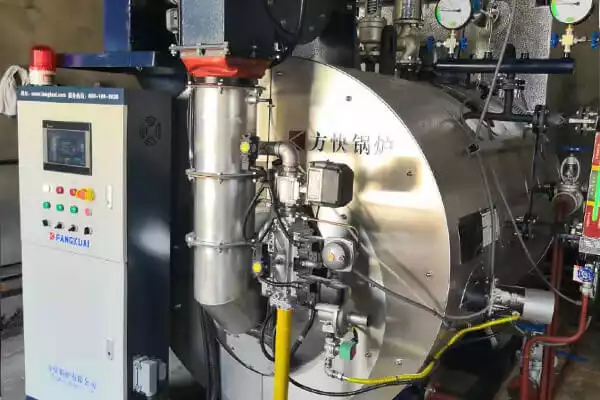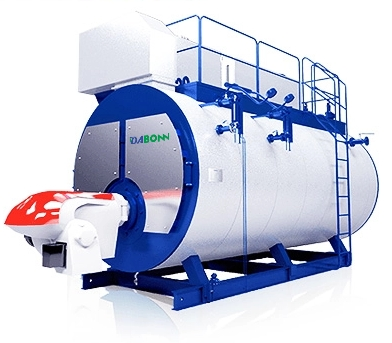
introduzione
Ci sono vari motivi per cui è necessario aumentare la pressione della caldaia. In questo articolo, discuteremo i motivi più comuni per cui le caldaie richiedono una pressione aggiuntiva e come aumentarla.
Perché la pressione della caldaia è importante?
La pressione della caldaia è importante perché controlla la quantità di calore prodotta e persa, così come la portata attraverso il sistema. A higher boiler pressure means that more steam will be generated, which increases your efficiency and reduces energy costs.
Boiler pressure also affects how much water is used in each cycle of operation. Se hai un high-pressure boiler system, there will be less loss due to evaporation during heating cycles compared with lower-pressure systems (di 10% less).
What causes low boiler pressure?
The Low Water Level in the Boiler
One of the fundamental reasons for low boiler pressure is the inadequate water level within the system. This can be caused by evaporation over time or improper filling during installation or maintenance. Insufficient water levels can result in reduced heat transfer efficiency and potential overheating of components, leading to pressure drops.
Leaking Boiler
A leaking boiler can result in the loss of water from the system, causing a drop in pressure. Leaks can occur due to deteriorated components, damaged seals, or corrosion over time. These leaks can be small and hard to detect initially, gradually reducing the pressure in the system.
Leaking Pressure Relief Valve
The function of the pressure relief valve is to release excess pressure and prevent the boiler from being over-pressurized. Tuttavia, a malfunctioning valve can lead to continuous pressure loss. If this valve is leaking, it might not effectively maintain the desired pressure level.
Leaking Boiler Feed Pump
Il boiler feed pump is mainly responsible for keeping the water level in the boiler within a safe range. If this pump is leaking, it can lead to inadequate water supply and subsequently low boiler pressure. Leaks can stem from damaged components or worn-out seals.
Faulty Boiler Pressure Gauge
A malfunctioning pressure gauge can provide inaccurate readings, leading to an incorrect perception of the actual boiler pressure. This can result in unnecessary adjustments and potential pressure drops.
High Ambient Temperature
In warmer weather, the ambient temperature can affect the pressure reading in your boiler. Higher temperatures can cause the water to expand, resulting in increased pressure. Tuttavia, this isn’t a cause for concern as long as the pressure remains within safe limits.
What is the correct pressure for my boiler?
The pressure in your boiler is measured in pounds per square inch (psi). The more water you have and the hotter it gets, the higher the pressure will be. The correct pressure should be between 15 e 22 PSI.
How to top up the pressure on a boiler?
If you need to increase the pressure in your boiler, follow these ways:
Usa la giusta quantità di acqua. Lo scopo di una caldaia è riscaldare l'acqua, quindi devi assicurarti che ce ne sia abbastanza. Altrimenti, aggiungi altro fino a raggiungere un punto in cui c'è una quantità uguale di spazio tra ogni bolla in alto e in basso. Ciò significa che tutte le parti vengono utilizzate in modo efficiente!
Controlla regolarmente il tuo manometro per assicurarti che tutto funzioni correttamente. In caso contrario, regolati di conseguenza finché tutto non sembra di nuovo a posto (questo potrebbe significare aggiungere più carbone o abbassare alcune manopole).
Make sure that nothing else needs replacing before doing anything else. Such as changing out old parts or adding new ones.
Last, you need to ensure that you’re not over-pressurizing it. The best way to do this is by using a pressure relief valve.
What to do if the boiler does not repressurize?
If the boiler doesn’t repressurize, you can follow these ways. Identify the root cause of the problem and ensure your boiler is back to optimal performance.
Call a Professional
If you find that your boiler is not repressurizing despite your efforts, it’s advisable to call a professional boiler technician. They have the expertise and tools to diagnose the issue accurately and recommend the appropriate solution.
Check for Boiler Leaks
Leaks within the boiler system can result in a drop in pressure. Follow these steps to check for leaks:
un. Inspect visible components: Carefully examine the boiler and its connections for any signs of water leakage. Such as damp spots, puddles, or visible water trails.
b. Monitor pressure changes: If the pressure drops significantly shortly after repressurizing. it might indicate a hidden leak within the system.
Check the Pressure Gauge
un. Compare readings: Use a reliable pressure measuring tool to compare the reading on the boiler’s pressure gauge. If there’s a significant discrepancy, the gauge might be faulty.
b. Consider replacement: If the pressure gauge consistently shows incorrect readings, consider replacing it with a new, accurate gauge.
Ensure Proper Pressure Relief Valve Function
The pressure relief valve is essential for preventing over-pressurization. Make sure it’s working correctly:
un. Observe the valve: The pressure relief valve should release small amounts of water during operation. If water is continuously dripping from the valve, it might be malfunctioning.
b. Test the valve: Consult your boiler’s manual for instructions on how to test the pressure relief valve’s functionality. Follow the provided procedure to ensure it’s operating as intended.
FAQs.
Is low boiler pressure dangerous?
Low boiler pressure can be a concern as it might indicate leaks, system inefficiencies, or malfunctions. While not necessarily dangerous, it can lead to reduced performance and potentially cause damage if not addressed promptly.
What PSI should a boiler run at?
The recommended pressure range for most boilers is around 1 a 1.5 bars when cold. This corresponds roughly to 15 a 22 PSI.
Does low boiler pressure affect hot water?
sì, low boiler pressure can affect the hot water supply. In alcuni casi, it might lead to reduced hot water output or inconsistent water temperature.
Can I increase the boiler pressure when hot?
It’s generally not recommended to adjust the boiler pressure when the system is hot. Boiler pressure adjustments should be made when the system is cold to ensure accurate readings and safe operation.
Can I fix the boiler pressure myself?
Minor adjustments to boiler pressure can be done by homeowners, but more complex issues should be addressed by a professional boiler technician to ensure safety and proper diagnosis.
What should boiler pressure be when the heating is off?
When the heating system is off, the pressure gauge is typically around 1 a 1.5 bars (15 a 22 PSI), but exact values may vary depending on the specific boiler model and manufacturer.
Conclusione
With a little bit of knowledge and the right tools, you can increase boiler pressure easily. It’s important to understand that not all boilers require the same amount of pressure.
Ottieni il tuo miglior prezzo
Confronta rapidamente 3 Citazioni gratuite
- Ingegnere Quick Quote
- La velocità di consegna complessiva è veloce
- Scelta finanziaria
- Bassi costi di installazione e risparmi sui costi
25 years+ of boiler R&D
Più di 20 tecnologie innovative
